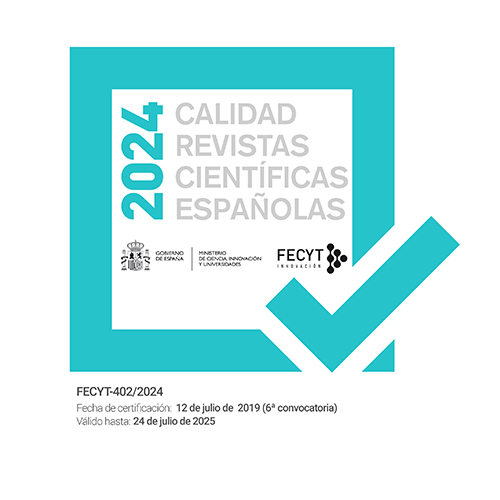Españoles/Extranjeros
Palabras clave:
Españoles/ExtranjerosResumen
The Spanish Constitution does not contain a general clause of equality between the foreigners and the Spaniards, although it prohibits the abuse (art. 9.3) and guarantees the respect to the dignity (art. 10.1), reason why the negative differences of treatment to the foreigners or some foreigners would only have to pass the rational basis scrutiny. As the equality before the law is recognized only the Spaniards (art. 14), it allows to understand that the treatment differences that are to them negative because of the nationality will have to pass one more or less strict scrutiny of reasonability. The Constitution also recognizes certain rights all people or in impersonal way, this is, independently of the nationality, although some rights are only recognized the Spaniards. When the Constitution appeals in art. 13.1 to treaties and laws, so that they establish the terms in which the foreigners will enjoy the rights and freedoms constitutionally recognized, allows to differentiate two areas: the one of the rights recognized all or in impersonal way, which the foreigners will enjoy, with no need of law nor treaty, in principle, in the same conditions that the Spaniards, in as much a law or a treaty does not establish different conditions of exercise; and the one of the rights recognized the Spaniards, whom the foreigners but in the conditions anticipated by treaties and the laws will not enjoy. That second rule last also for guarantees such as the one of the respect to the essential content of the rights (art. 53.1), in spite of the doctrine contained in STC 115/1987. Yet, any restriction of one freedom constitutionally guaranteed –the rights recognized all or not only the Spaniards– it will only be possible if it is directed to obtain a legitimate aim and if it is adequated to his attainment. As when taking effect the Constitution already were it the International Civil and Political Rights Pact (New York 1966), we have to understand that the foreigners remained protected by the general clause of equality without discrimination, contained in art. 26 of this Pact, so that the treatment differences would have to pass the reasonability scrutiny, although in this clause the difference of treatment based on the nationality is not considered specially suspicious, like something possibly different from the national origin. The spanish law of rights and freedoms of the foreigners either does not contain a general rule of equality between the foreigners and the Spaniards. Is extremely insidious the generalization such law does of the legality or not of the situation of the foreigner in Spain, like differentiating criterion for the recognition of rights and freedoms constitutionally recognized sometimes not only the Spaniards. In addition, it ignores and, therefore, not having opted for the equality as the general rule, it denies the foreigners who are not in Spain rights and benefits constitutionally recognized not only the Spaniards. And, finally, it contains like measures against discrimination some directed to notice that the foreigners who are not in Spain in legal situation does not deserve any protection by such way. All this generates numerous unconstitutional rules.
Descargas
Descargas
Publicado
Número
Sección
Licencia
Derechos de autor 2023 Revista Española de Derecho Internacional

Esta obra está bajo una licencia internacional Creative Commons Atribución-NoComercial-SinDerivadas 4.0.





















